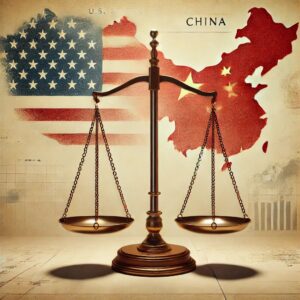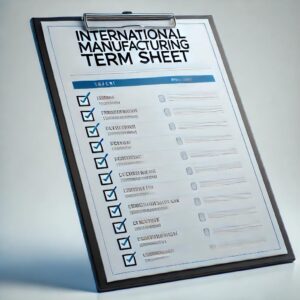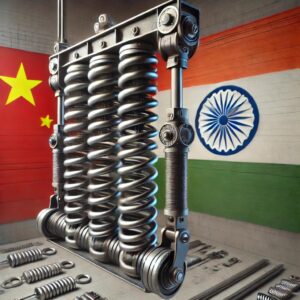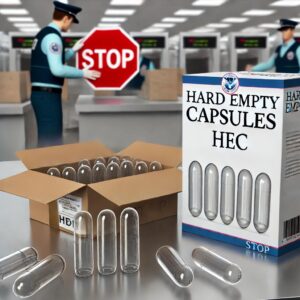1. China factory disputes are on the rise.
China factory disputes are on the rise because many China factories are suffering from the US-China Cold War, from China’s ongoing energy shortages (which are likely to get worse), and from China’s declining economy. I say China factories are in trouble not just just because of the statistics everyone sees, but also because our international dispute resolution lawyers are seeing a big uptick in emails from foreign companies reporting the usual range of China factory disputes that we see whenever China’s factories are suffering. See China’s Slowdown and You.
We have been getting a ton of emails from foreign buyers being pursued by their Chinese factories for refusing to pay for defective products. Typically the foreign company is trying to achieve some sort of compromise while the Chinese factory is insisting on full payment.
There are many risks for foreign companies in these situations and the first question we usually ask these companies is how easily they can move their manufacturing outside China. If they say they can and want to move their manufacturing out of China (which is becoming more common these days), we work with them to achieve that as quickly as possible.
If the company with the China factory dispute is not well positioned to move its manufacturing out of China quickly, our lawyers discuss the sorts of defenses they need to start building to be able to stay in China.
1. What to do and what not to do when you are having problems with your factory
There are certain things you should and should not do if involved in a dispute with your Chinese factory. One thing you should not do is go to China to try to resolve the matter with your Chinese manufacturer. Though with COVID this is not likely to happen in any event (unless you already have someone in China), this rule is so important I feel compelled to state it nonetheless for those who read this post after COVID has truly waned. See Meng Wenzhou, the Two Michaels and China Hostage Taking: What YOU Need to Know.
Second, do not believe for a second that your Chinese factory cares about anything other than getting the full amount of money it claims you owe it. Do not believe it cares about having sent you defective and unusable product. If you don’t have a China-centric manufacturing agreement that clearly specifies the quality of product you are to receive, Chinese law is almost certainly on the side of your Chinese manufacturer and it knows there is little to no likelihood of it ever being called to account. See Overseas Manufacturing Contracts (OEM, CM and ODM). I am not saying there are no foreign companies important enough to their Chinese factories to be able to work out a reasonable resolution with them, but I am saying this is rare and it probably is not your situation.
2. How to Resolve Your China Factory Problems
There is no one good way to deal with a rampaging Chinese factory and your best path for handling China factory disputes usually depends on the contracts, the situation, and the overall goals of the parties involved. When our international dispute resolution lawyers are retained to represent a to help with a China factory dispute, we typically begin by asking the client the following questions:
1. Can you move all your production outside of China quickly?
2. How much is the Chinese factory claiming you owe it? There is no point in hiring a lawyer if the amount at stake is too low to warrant it.
3. Why have you not paid your Chinese factory the amount it claims you owe it? This greatly influences initial strategies.
4. To whom do you owe the money? We usually follow up by asking how important the creditor factory is to the foreign company ’s business. Sometimes the client thinks they owe money to a Chinese factory but they actually owe it to an unrevealed sourcing agent. This can change strategy considerations.
5. Do you have other suppliers in China in addition to the one that is claiming you owe it money? We ask this to get a better sense of how important it is to resolve the situation quickly.
6. Is it important that you be able to continue doing business in China? Exactly what sort of business? These are important questions for determining strategy.
7. Is it important that you or anyone else in your company be able to go to China? This is an important question for determining strategy.
8. Do you have any brand names or logos or other IP that you use on any products or packaging made in China? If so, have you registered those brand names or logos in China?
3. Protecting your China IP is key.
It is incredibly common for Chinese factories in disputes with their foreign product buyers to go off and register their foreign debtor’s brand names and logos as China trademarks so as to gain leverage. Often, the first thing we do is seek to shore up the foreign company’s IP registrations when they are in any sort of business dispute in China. You do not want to go into battle without first patching up a gaping wound. See China Trademarks: Register Yours BEFORE You Do ANYTHING Else. But on the flip side, if you do have any IP registered in China, these are assets your China factory can very easily seize and that itself is often disastrous for the foreign company. The bottom line is that the IP issue is absolutely critical and complicated and must always be addressed early whenever a foreign company is in a China factory dispute.
4. How to negotiate with your Chinese factory AND avoid litigation
What about trying to negotiate with the Chinese factory? We always want to try this because it sometimes works and when it does it can save the foreign product buying company a lot of money. But if you are going to do this, it is important to know that any resolution with your factory must be documented with a signed settlement agreement that is effective and enforceable in China. Chinese factories commonly will agree to accept a lesser amount in settlement, then get that lesser amount and flip right around and sue for the remainder they are allegedly owed or bring in Sinosure to sue you in your home country. And when I say common, I mean about 90 percent of the time.
Your defense against “settling” and then being sued nonetheless is to reach oral agreement with your Chinese factory on an amount and then tell them that you will need a signed settlement agreement making clear that if you pay that amount you do not owe them anything more. About half the time they will agree to this and about half the time they will not. If they do not, that means you did not have a real agreement with them in the first place. If they do agree to sign a settlement agreement, you should retain an experienced China attorney to draft a settlement agreement that will actually work for you. For how not to choose your China lawyer for this sort of contract drafting, check out China Contract Drafting Scams: From Bad to Much Worse.
5. How to avoid China Factory disputes in the first place
For how to minimize your chances of having a dispute with your overseas (China or anywhere else) factory in the first place, I suggest you check out How NOT to Lose Your Shirt When Having Your Product Made Overseas.
How do you handle your China factory disputes?

























